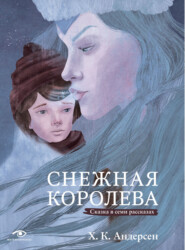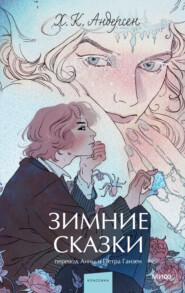По всем вопросам обращайтесь на: info@litportal.ru
(©) 2003-2024.
✖
The Sand-Hills of Jutland
Настройки чтения
Размер шрифта
Высота строк
Поля
He dozed a good deal; yet time seemed long and weary. He shed no tears, and had but little suffering. Molly was scarcely ever in his thoughts. He had a conviction that this world and its bustle were no more for him. At one time he seemed to feel hunger and thirst. He did feel them; but no one came to give him nourishment or drink – no one would come. He thought of those who might be fainting or dying of want. He remembered how the pious Elizabeth, while living on this earth – she who had been the favourite heroine of his childish days at home, the magnanimous Duchess of Thüringia – had herself entered the most miserable abodes, and brought to the sick and wretched refreshments and hope. His thoughts dwelt with pleasure on her good deeds. He remembered how she went to feed the hungry, to speak words of comfort to those who were suffering, and to bind up their wounds, although her austere husband was angry at these works of mercy. He recalled to memory the legend about her, that, as she was going on one of her charitable errands, with a basket well filled with food and wine, her husband, who had watched her steps, rushed out on her, and demanded in high wrath what she was carrying; that, in her fear of him, she replied, "Roses which I have plucked in the garden;" whereupon he dragged the cover off of her basket, and lo! a miracle was worked in favour of the charitable lady, for the wine and bread, and everything in the basket, lay turned into roses.
Thus old Anthon's thoughts wandered to the heroine in history whom he had always so much admired, until her image seemed to stand before his dimming sight, close to his humble pallet in the poor wooden hut in a foreign land. He uncovered his head, looked in fancy into her mild eyes, and all around him seemed a mingling of lustre and of roses redolent with sweet perfume. Then he felt the charming scent of the apple blossom, and he beheld an apple tree spreading its blooming branches above him. Yes, it was the very tree, the seeds of which he and Molly had planted together.
And the tree swept its fragrant leaves over his hot brow, and cooled it; they touched his parched lips, and they were like refreshing wine and bread; they fell upon his breast, and he felt himself softly sinking into a calm slumber.
"I shall sleep now," he whispered feebly to himself. "Sleep restores strength – to-morrow I shall be well and up again. Beautiful, beautiful! The apple tree planted in love I see again in glory."
And he slept.
The following day – it was the third day the booth had been shut up – the snow drifted no longer, and the neighbours went to see about Anthon, who had not yet shown himself. They found him lying stiff and dead, with his old nightcap pressed between his hands. They did not put it upon him in his coffin – he had also another which was clean and white.
Where now were the tears he had wept? Where were these pearls? They remained in the nightcap. Such precious things do not pass away in the washing. They were preserved and forgotten with the nightcap. The old thoughts, the old dreams – yes, they remained still in the old bachelor's nightcap. Wish not for that. It will make your brow too hot, make your pulses beat too violently, bring dreams that seem reality. This was proved by the first person who put it on – and that was not till fifty years after – by the burgomaster himself, who was blessed with a wife and eleven children. He dreamt of unhappy love, bankruptcy, and short commons.
"How warm this nightcap is!" he exclaimed, as he dragged it off. Then pearl after pearl began to fall from it, and they jingled and glittered. "I must have got the rheumatism in my head," said the burgomaster. "Sparks seem falling from my eyes."
They were tears wept half a century before – wept by old Anthon from Eisenach.
Whoever has since worn that nightcap has sure enough had visions and dreams; his own history has been turned into Anthon's; his dream has become quite a tale, and there were many of them. Let others relate the rest. We have now told the first, and with it our last words are – Never covet an old bachelor's nightcap.
Something
"I will be something," said the oldest of five brothers. "I will be of use in the world, let the position be ever so insignificant which I may fill. If it be only respectable, it will be something. I will make bricks – people can't do without these – and then I shall have done something."
"But something too trifling," said the second brother. "What you propose to do is much the same as doing nothing; it is no better than a hodman's work, and can be done by machinery. You had much better become a mason. That is something, and that is what I will be. Yes, that is a good trade. A mason can get into a trade's corporation, become a burgher, have his own colours and his own club. Indeed, if I prosper, I may have workmen under me, and be called 'Master,' and my wife 'Mistress;' and that would be something."
"That is next to nothing," said the third. "There are many classes in a town, and that is about the lowest. It is nothing to be called 'Master.' You might be very superior yourself; but as a master mason you would be only what is called 'a common man.' I know of something better. I will be an architect; enter upon the confines of science; work myself up to a high place in the kingdom of mind. I know I must begin at the foot of the ladder. I can hardly bear to say it – I must begin as a carpenter's apprentice, and wear a cap, though I have been accustomed to go about in a silk hat. I must run to fetch beer and spirits for the common workmen, and let them be 'hail fellow well met' with me. This will be disagreeable; but I will fancy that it is all a masquerade and the freedom of maskers. To-morrow – that is to say, when I am a journeyman – I will go my own way. The others will not join me. I shall go to the academy, and learn to draw and design; then I shall be called an architect. That is something! That is much! I may become 'honourable,' or even 'noble' – perhaps both. I shall build and build, as others have done before me. There is something to look forward to – something worth being!"
"But that something I should not care about," said the fourth. "I will not march in the wake of anybody. I will not be a copyist; I will be a genius – will be cleverer than you all put together. I shall create a new style, furnish ideas for a building adapted to the climate and materials of the country – something which shall be a nationality, a development of the resources of our age, and, at the same time, an exhibition of my own genius."
"But if by chance the climate and the materials did not suit each other," said the fifth, "that would be unfortunate for the result. Nationalities may be so amplified as to become affectation. The discoveries of the age, like youth, may leave you far behind. I perceive right well that none of you will, in reality, become anything, whatever may be your expectations. But do all of you what you please; I shall not follow your examples. I shall keep myself disengaged, and shall reason upon what you perform. There is something wrong in everything. I will pick that out, and reason upon it. That will be something."
And so he did; and people said of the fifth, "He has not settled to anything. He has a good head, but he does nothing."
Even this, however, made him something.
This is but a short history; yet it is one which will not end as long as the world stands.
But is there nothing more about the five brothers? What has been told is absolutely nothing. Hear further; it is quite a romance.
The eldest brother, who made bricks, perceived that from every stone, when it was finished, rolled a small coin; and though these little coins were but of copper, many of them heaped together became a silver dollar; and when one knocks with such at the baker's, the butcher's, and other shops, the doors fly open, and one gets what one wants. The bricks produced all this. The damaged and broken bricks were also made good use of.
Yonder, above the embankment, Mother Margrethe, a poor old woman, wanted to build a small house for herself. She got all the broken bricks, and some whole ones to boot; for the eldest brother had a good heart. The poor woman built her house herself. It was very small; the only window was put in awry, the door was very low, and the thatched roof might have been laid better; but it was at least a shelter and a cover for her. There was a fine view from it of the sea, which broke in its might against the embankment. The salt spray often dashed over the whole tiny house, which still stood there when he was dead and gone who had given the bricks: —
The second brother could build in another way. He was also clever in his business. When his apprenticeship was over he strapped on his knapsack, and sang the mechanic's song: —
"While young, far-distant lands I'll tread.
Away from home to build,
My handiwork shall win my bread,
My heart with hope be filled.
And when my fatherland I see,
And meet my bride – hurra!
An active workman I shall be:
Then who so happy and gay?"
And he was that. When he returned to his native town, and became a master, he built house after house – a whole street. It was a very handsome one, and a great ornament to the town. These houses built for him a small house, which was to be his own. But how could the houses build? Ay, ask them that, and they will not answer you; but people will answer for them, and tell you, "It certainly was that street which built him a house." It was only a small one, to be sure, and with a clay floor; but when he and his bride danced on it the floor became polished and bright, and from every stone in the wall sprang a flower which was quite as good as any costly tapestry. It was a pleasant house, and they were a happy couple. The colours of the masons' company floated outside, and the journeymen and apprentices shouted "Hurra!" Yes, that was something; and so he died – and that was also something.
Then came the architect, the third brother, who had been first a carpenter's apprentice, wearing a cap and going on errands; but, on leaving the academy, rose to be an architect, and he became a man of consequence. Yes, if the houses in the street built by his brother, the master mason, had provided him with a house, a street was called after the architect, and the handsomest house in it was his own. That was something; and he was somebody, with a long, high-sounding title besides. His children were called people of quality, and when he died his widow was a widow of rank – that was something. And his name stood as a fixture at the corner of the street, and was often in folks' mouths, being the name of a street – and that was certainly something.
Next came the genius – the fourth brother – who was to devote himself to new inventions. In one of his ambitious attempts he fell, and broke his neck; but he had a splendid funeral, with a procession, and flags, and music. He was noticed in the newspapers, and three funeral orations were pronounced over him, the one longer than the others; and much delighted he would have been with them if he had heard them, for he was fond of being talked about. A monument was erected over his grave. It was not very grand, but a monument is always something.
He now was dead, as well as the three other brothers; but the fifth – he who was fond of reasoning or arguing – out-lived them all; and that was quite right, for he had thus the last word. And he thought it a matter of great importance to have the last word. It was he who, folks said, "had a good head." At length his last hour also struck. He died, and he arrived at the gate of the kingdom of heaven. Spirits always come there two and two, and along with him stood there another soul, which wanted also to get in, and this was no other than the old Mother Margrethe, from the house on the embankment.
"It must surely be for the sake of contrast that I and yon paltry soul should come here at the same moment," said the reasoner. "Why, who are you, old one? Do you also expect to enter here?" he asked.
And the old woman courtesied as well as she could. She thought it was St. Peter himself who spoke.
"I am a miserable old creature without any family. My name is Margrethe."
"Well, now, what have you done and effected down yonder?"
"I have effected scarcely anything in yonder world – nothing that can tell in my favour here. It will be a pure act of mercy if I am permitted to enter this gate."
"How did you leave yon world?" he asked, merely for something to say. He was tired of standing waiting there.
"Oh! how I left it I really do not know. I had been very poorly, often quite ill, for some years past, and I was not able latterly to leave my bed, and go out into the cold and frost. It was a very severe winter; but I was getting through it. For a couple of days there was a dead calm; but it was bitterly cold, as your honour may remember. The ice had remained so long on the ground, that the sea was frozen over as far as the eye could reach. The townspeople flocked in crowds to the ice. I could hear it all as I lay in my poor room. The same scene continued till late in the evening – till the moon rose. From my bed I could see through the window far out beyond the seashore; and there lay on the horizon, just where the sea and sky seemed to meet, a singular-looking white cloud. I lay and looked at it; looked at the black spot in the middle of it, which became larger and larger; and I knew what that betokened, for I was old and experienced, though I had not often seen that sign. I saw it and shuddered. Twice before in my life had I seen that strange appearance in the sky, and I knew that there would be a terrible storm at the springtide, which would burst over the poor people out upon the ice, who were now drinking and rushing about, and amusing themselves. Young and old – the whole town in fact – were assembled yonder. Who was to warn them of coming danger, if none of them observed or knew what I now perceived? I became so alarmed, so anxious, that I got out of my bed, and crawled to the window. I was incapable of going further; but I put up the window, and, on looking out, I could see the people skating and sliding and running on the ice. I could see the gay flags, and could hear the boys shouting hurra, and the girls and the young men singing in chorus. All was jollity and merriment there. But higher and higher arose the white cloud with the black spot in it. I cried out as loud as I could, but nobody heard me. I was too far away from them. The wind would soon break loose, the ice give away, and all upon it sink, without any chance of rescue. Hear me they could not, and for me to go to them was impossible. Was there nothing that I could do to bring them back to land? Then our Lord inspired me with the idea of setting fire to my bed; it would be better that my house were to be burned down than that the many should meet with such a miserable death. Then I kindled the fire. I saw the red flames, and I gained the outside of the house; but I remained lying there. I could do no more, for my strength was exhausted. The blaze pursued me – it burst from the window, and out upon the roof. The crowds on the ice perceived it, and they came running as fast as they could to help me, a poor wretch, whom they thought would be burned in my bed. It was not one or two only who came – they all came. I heard them coming; but I also heard all at once the shrill whistle, the loud roar of the wind. I heard it thunder like the report of a cannon. The springtide lifted the ice, and suddenly it broke asunder; but the crowd had reached the embankment, where the sparks were flying over me. I had been the means of saving them all; but I was not able to survive the cold and fright, and so I have come up here to the gate of the kingdom of heaven; but I am told it is locked against such poor creatures as I. And now I have no longer a home down yonder on the embankment, though that does not insure me any admittance here."
At that moment the gate of heaven was opened, and an angel took the old woman in. She dropped a straw; it was one of the pieces of straw which had stuffed the bed to which she had set fire to save the lives of many, and it had turned to pure gold, but gold that was flexible, and twisted itself into pretty shapes.
"See! the poor old woman brought this," said the angel. "What dost thou bring? Ah! I know well; thou hast done nothing – not even so much as making a brick. If thou couldst go back again, and bring only so much as that, if done with good intentions, it would be something: as thou wouldst do it, however, it would be of no avail. But thou canst not go back, and I can do nothing for thee."
Then the poor soul, the old woman from the house on the embankment, begged for him.
"His brother kindly gave me all the stones with which I built my humble dwelling. They were a great gift to a poor creature like me. May not all these stones and fragments be permitted to value as one brick for him? It was a deed of mercy. He is now in want, and this is Mercy's home."
"Thy brother whom thou didst think the most inferior to thyself – him whose honest business thou didst despise – shares with thee his heavenly portion. Thou shalt not be ordered away; thou shalt have leave to remain outside here to think over and to repent thy life down yonder; but within this gate thou shalt not enter until in good works thou hast performed something."
"I could have expressed that sentence better," thought the conceited logician; but he did not say this aloud, and that was surely already – something.
The Old Oak Tree's Last Dream
A CHRISTMAS TALE
There stood in a wood, high up on the side of a sloping hill near the open shore, a very old oak tree. It was about three hundred and sixty-five years old, but those long years were not more than as many single rotations of the earth for us men. We are awake during the day, and sleep during the night, and have then our dreams: with the tree it is otherwise. A tree is awake for three quarters of a year. It only sleeps in winter – that is its night – after the long day which is called spring, summer, and autumn.
Many a warm summer day had the ephemeron insect frolicked round the oak tree's head – lived, moved about, and found itself happy; and when the little creature reposed for a moment in calm enjoyment on one of the great fresh oak leaves, the tree always said, —
"Poor little thing! one day alone is the span of thy whole life. Ah, how short! It is very sad."
"Sad!" the ephemeron always replied. "What dost thou mean by that? Everything is so charming, so warm and delightful, that I am quite happy."
Thus old Anthon's thoughts wandered to the heroine in history whom he had always so much admired, until her image seemed to stand before his dimming sight, close to his humble pallet in the poor wooden hut in a foreign land. He uncovered his head, looked in fancy into her mild eyes, and all around him seemed a mingling of lustre and of roses redolent with sweet perfume. Then he felt the charming scent of the apple blossom, and he beheld an apple tree spreading its blooming branches above him. Yes, it was the very tree, the seeds of which he and Molly had planted together.
And the tree swept its fragrant leaves over his hot brow, and cooled it; they touched his parched lips, and they were like refreshing wine and bread; they fell upon his breast, and he felt himself softly sinking into a calm slumber.
"I shall sleep now," he whispered feebly to himself. "Sleep restores strength – to-morrow I shall be well and up again. Beautiful, beautiful! The apple tree planted in love I see again in glory."
And he slept.
The following day – it was the third day the booth had been shut up – the snow drifted no longer, and the neighbours went to see about Anthon, who had not yet shown himself. They found him lying stiff and dead, with his old nightcap pressed between his hands. They did not put it upon him in his coffin – he had also another which was clean and white.
Where now were the tears he had wept? Where were these pearls? They remained in the nightcap. Such precious things do not pass away in the washing. They were preserved and forgotten with the nightcap. The old thoughts, the old dreams – yes, they remained still in the old bachelor's nightcap. Wish not for that. It will make your brow too hot, make your pulses beat too violently, bring dreams that seem reality. This was proved by the first person who put it on – and that was not till fifty years after – by the burgomaster himself, who was blessed with a wife and eleven children. He dreamt of unhappy love, bankruptcy, and short commons.
"How warm this nightcap is!" he exclaimed, as he dragged it off. Then pearl after pearl began to fall from it, and they jingled and glittered. "I must have got the rheumatism in my head," said the burgomaster. "Sparks seem falling from my eyes."
They were tears wept half a century before – wept by old Anthon from Eisenach.
Whoever has since worn that nightcap has sure enough had visions and dreams; his own history has been turned into Anthon's; his dream has become quite a tale, and there were many of them. Let others relate the rest. We have now told the first, and with it our last words are – Never covet an old bachelor's nightcap.
Something
"I will be something," said the oldest of five brothers. "I will be of use in the world, let the position be ever so insignificant which I may fill. If it be only respectable, it will be something. I will make bricks – people can't do without these – and then I shall have done something."
"But something too trifling," said the second brother. "What you propose to do is much the same as doing nothing; it is no better than a hodman's work, and can be done by machinery. You had much better become a mason. That is something, and that is what I will be. Yes, that is a good trade. A mason can get into a trade's corporation, become a burgher, have his own colours and his own club. Indeed, if I prosper, I may have workmen under me, and be called 'Master,' and my wife 'Mistress;' and that would be something."
"That is next to nothing," said the third. "There are many classes in a town, and that is about the lowest. It is nothing to be called 'Master.' You might be very superior yourself; but as a master mason you would be only what is called 'a common man.' I know of something better. I will be an architect; enter upon the confines of science; work myself up to a high place in the kingdom of mind. I know I must begin at the foot of the ladder. I can hardly bear to say it – I must begin as a carpenter's apprentice, and wear a cap, though I have been accustomed to go about in a silk hat. I must run to fetch beer and spirits for the common workmen, and let them be 'hail fellow well met' with me. This will be disagreeable; but I will fancy that it is all a masquerade and the freedom of maskers. To-morrow – that is to say, when I am a journeyman – I will go my own way. The others will not join me. I shall go to the academy, and learn to draw and design; then I shall be called an architect. That is something! That is much! I may become 'honourable,' or even 'noble' – perhaps both. I shall build and build, as others have done before me. There is something to look forward to – something worth being!"
"But that something I should not care about," said the fourth. "I will not march in the wake of anybody. I will not be a copyist; I will be a genius – will be cleverer than you all put together. I shall create a new style, furnish ideas for a building adapted to the climate and materials of the country – something which shall be a nationality, a development of the resources of our age, and, at the same time, an exhibition of my own genius."
"But if by chance the climate and the materials did not suit each other," said the fifth, "that would be unfortunate for the result. Nationalities may be so amplified as to become affectation. The discoveries of the age, like youth, may leave you far behind. I perceive right well that none of you will, in reality, become anything, whatever may be your expectations. But do all of you what you please; I shall not follow your examples. I shall keep myself disengaged, and shall reason upon what you perform. There is something wrong in everything. I will pick that out, and reason upon it. That will be something."
And so he did; and people said of the fifth, "He has not settled to anything. He has a good head, but he does nothing."
Even this, however, made him something.
This is but a short history; yet it is one which will not end as long as the world stands.
But is there nothing more about the five brothers? What has been told is absolutely nothing. Hear further; it is quite a romance.
The eldest brother, who made bricks, perceived that from every stone, when it was finished, rolled a small coin; and though these little coins were but of copper, many of them heaped together became a silver dollar; and when one knocks with such at the baker's, the butcher's, and other shops, the doors fly open, and one gets what one wants. The bricks produced all this. The damaged and broken bricks were also made good use of.
Yonder, above the embankment, Mother Margrethe, a poor old woman, wanted to build a small house for herself. She got all the broken bricks, and some whole ones to boot; for the eldest brother had a good heart. The poor woman built her house herself. It was very small; the only window was put in awry, the door was very low, and the thatched roof might have been laid better; but it was at least a shelter and a cover for her. There was a fine view from it of the sea, which broke in its might against the embankment. The salt spray often dashed over the whole tiny house, which still stood there when he was dead and gone who had given the bricks: —
The second brother could build in another way. He was also clever in his business. When his apprenticeship was over he strapped on his knapsack, and sang the mechanic's song: —
"While young, far-distant lands I'll tread.
Away from home to build,
My handiwork shall win my bread,
My heart with hope be filled.
And when my fatherland I see,
And meet my bride – hurra!
An active workman I shall be:
Then who so happy and gay?"
And he was that. When he returned to his native town, and became a master, he built house after house – a whole street. It was a very handsome one, and a great ornament to the town. These houses built for him a small house, which was to be his own. But how could the houses build? Ay, ask them that, and they will not answer you; but people will answer for them, and tell you, "It certainly was that street which built him a house." It was only a small one, to be sure, and with a clay floor; but when he and his bride danced on it the floor became polished and bright, and from every stone in the wall sprang a flower which was quite as good as any costly tapestry. It was a pleasant house, and they were a happy couple. The colours of the masons' company floated outside, and the journeymen and apprentices shouted "Hurra!" Yes, that was something; and so he died – and that was also something.
Then came the architect, the third brother, who had been first a carpenter's apprentice, wearing a cap and going on errands; but, on leaving the academy, rose to be an architect, and he became a man of consequence. Yes, if the houses in the street built by his brother, the master mason, had provided him with a house, a street was called after the architect, and the handsomest house in it was his own. That was something; and he was somebody, with a long, high-sounding title besides. His children were called people of quality, and when he died his widow was a widow of rank – that was something. And his name stood as a fixture at the corner of the street, and was often in folks' mouths, being the name of a street – and that was certainly something.
Next came the genius – the fourth brother – who was to devote himself to new inventions. In one of his ambitious attempts he fell, and broke his neck; but he had a splendid funeral, with a procession, and flags, and music. He was noticed in the newspapers, and three funeral orations were pronounced over him, the one longer than the others; and much delighted he would have been with them if he had heard them, for he was fond of being talked about. A monument was erected over his grave. It was not very grand, but a monument is always something.
He now was dead, as well as the three other brothers; but the fifth – he who was fond of reasoning or arguing – out-lived them all; and that was quite right, for he had thus the last word. And he thought it a matter of great importance to have the last word. It was he who, folks said, "had a good head." At length his last hour also struck. He died, and he arrived at the gate of the kingdom of heaven. Spirits always come there two and two, and along with him stood there another soul, which wanted also to get in, and this was no other than the old Mother Margrethe, from the house on the embankment.
"It must surely be for the sake of contrast that I and yon paltry soul should come here at the same moment," said the reasoner. "Why, who are you, old one? Do you also expect to enter here?" he asked.
And the old woman courtesied as well as she could. She thought it was St. Peter himself who spoke.
"I am a miserable old creature without any family. My name is Margrethe."
"Well, now, what have you done and effected down yonder?"
"I have effected scarcely anything in yonder world – nothing that can tell in my favour here. It will be a pure act of mercy if I am permitted to enter this gate."
"How did you leave yon world?" he asked, merely for something to say. He was tired of standing waiting there.
"Oh! how I left it I really do not know. I had been very poorly, often quite ill, for some years past, and I was not able latterly to leave my bed, and go out into the cold and frost. It was a very severe winter; but I was getting through it. For a couple of days there was a dead calm; but it was bitterly cold, as your honour may remember. The ice had remained so long on the ground, that the sea was frozen over as far as the eye could reach. The townspeople flocked in crowds to the ice. I could hear it all as I lay in my poor room. The same scene continued till late in the evening – till the moon rose. From my bed I could see through the window far out beyond the seashore; and there lay on the horizon, just where the sea and sky seemed to meet, a singular-looking white cloud. I lay and looked at it; looked at the black spot in the middle of it, which became larger and larger; and I knew what that betokened, for I was old and experienced, though I had not often seen that sign. I saw it and shuddered. Twice before in my life had I seen that strange appearance in the sky, and I knew that there would be a terrible storm at the springtide, which would burst over the poor people out upon the ice, who were now drinking and rushing about, and amusing themselves. Young and old – the whole town in fact – were assembled yonder. Who was to warn them of coming danger, if none of them observed or knew what I now perceived? I became so alarmed, so anxious, that I got out of my bed, and crawled to the window. I was incapable of going further; but I put up the window, and, on looking out, I could see the people skating and sliding and running on the ice. I could see the gay flags, and could hear the boys shouting hurra, and the girls and the young men singing in chorus. All was jollity and merriment there. But higher and higher arose the white cloud with the black spot in it. I cried out as loud as I could, but nobody heard me. I was too far away from them. The wind would soon break loose, the ice give away, and all upon it sink, without any chance of rescue. Hear me they could not, and for me to go to them was impossible. Was there nothing that I could do to bring them back to land? Then our Lord inspired me with the idea of setting fire to my bed; it would be better that my house were to be burned down than that the many should meet with such a miserable death. Then I kindled the fire. I saw the red flames, and I gained the outside of the house; but I remained lying there. I could do no more, for my strength was exhausted. The blaze pursued me – it burst from the window, and out upon the roof. The crowds on the ice perceived it, and they came running as fast as they could to help me, a poor wretch, whom they thought would be burned in my bed. It was not one or two only who came – they all came. I heard them coming; but I also heard all at once the shrill whistle, the loud roar of the wind. I heard it thunder like the report of a cannon. The springtide lifted the ice, and suddenly it broke asunder; but the crowd had reached the embankment, where the sparks were flying over me. I had been the means of saving them all; but I was not able to survive the cold and fright, and so I have come up here to the gate of the kingdom of heaven; but I am told it is locked against such poor creatures as I. And now I have no longer a home down yonder on the embankment, though that does not insure me any admittance here."
At that moment the gate of heaven was opened, and an angel took the old woman in. She dropped a straw; it was one of the pieces of straw which had stuffed the bed to which she had set fire to save the lives of many, and it had turned to pure gold, but gold that was flexible, and twisted itself into pretty shapes.
"See! the poor old woman brought this," said the angel. "What dost thou bring? Ah! I know well; thou hast done nothing – not even so much as making a brick. If thou couldst go back again, and bring only so much as that, if done with good intentions, it would be something: as thou wouldst do it, however, it would be of no avail. But thou canst not go back, and I can do nothing for thee."
Then the poor soul, the old woman from the house on the embankment, begged for him.
"His brother kindly gave me all the stones with which I built my humble dwelling. They were a great gift to a poor creature like me. May not all these stones and fragments be permitted to value as one brick for him? It was a deed of mercy. He is now in want, and this is Mercy's home."
"Thy brother whom thou didst think the most inferior to thyself – him whose honest business thou didst despise – shares with thee his heavenly portion. Thou shalt not be ordered away; thou shalt have leave to remain outside here to think over and to repent thy life down yonder; but within this gate thou shalt not enter until in good works thou hast performed something."
"I could have expressed that sentence better," thought the conceited logician; but he did not say this aloud, and that was surely already – something.
The Old Oak Tree's Last Dream
A CHRISTMAS TALE
There stood in a wood, high up on the side of a sloping hill near the open shore, a very old oak tree. It was about three hundred and sixty-five years old, but those long years were not more than as many single rotations of the earth for us men. We are awake during the day, and sleep during the night, and have then our dreams: with the tree it is otherwise. A tree is awake for three quarters of a year. It only sleeps in winter – that is its night – after the long day which is called spring, summer, and autumn.
Many a warm summer day had the ephemeron insect frolicked round the oak tree's head – lived, moved about, and found itself happy; and when the little creature reposed for a moment in calm enjoyment on one of the great fresh oak leaves, the tree always said, —
"Poor little thing! one day alone is the span of thy whole life. Ah, how short! It is very sad."
"Sad!" the ephemeron always replied. "What dost thou mean by that? Everything is so charming, so warm and delightful, that I am quite happy."

















